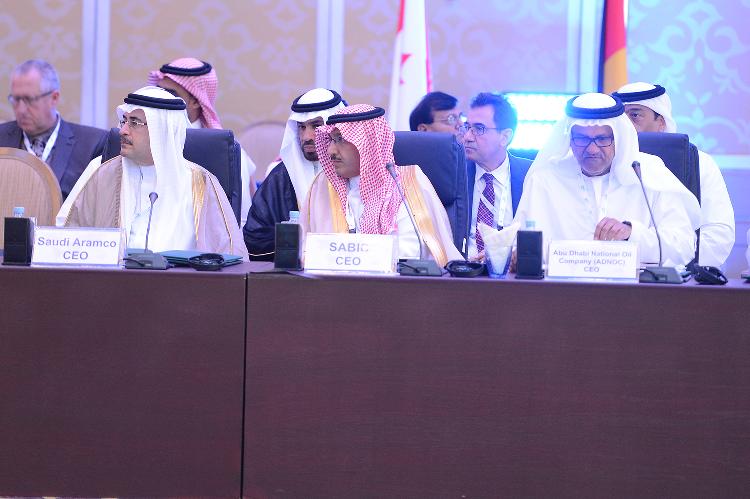
SABIC INITIATIVE TO PROMOTE CARBON CAPTURE AND UTILIZATION IS BOOSTING SUSTAINABILITY
SABIC is making a significant contribution in carbon capture and storage through initiatives, such as the world’s largest CO2 purification plant at its manufacturing affiliate United, Mohammed Al-Benyan, acting Vice-Chairman and CEO, said at the Carbon Sequestration Leadership Forum (CSLF) in Riyadh today.
“SABIC recognizes international concerns about climate change and that taking action is a priority,” Al-Benyan said during a keynote speech. “We are part of the solution because our products can help reduce CO2 emissions and help our customers to meet their sustainability goals.”
SABIC, Saudi Aramco, and the Ministry of Petroleum and Mineral Resources of Saudi Arabia are collaborating to host the sixth meeting of the CSLF in Riyadh from November 1 to 5.
“Taking action on GHG makes business sense because operational energy and resource efficiency lowers operating costs and low carbon sustainable solutions provide lower risk growth opportunities,” Al-Benyan added.
The forum included exhibition by the participants. SABIC’s contribution to the event included a new video explaining the CO2 purification plant in Jubail, the reasons for its design, and the benefits it brings to Saudi Arabia and the global drive to control carbon emissions and promote sustainability.
The plant compresses and purifies around 1,500 tons of CO2 per day from ethylene-glycol plants, which is then pipelined to SABIC affiliates for methanol and urea production. The plant is expected to save 500,000 tons of CO2 emissions every year.
SABIC encourages governmental support and policies that accelerate technology development and innovation, and sharing of best practices. The company engages internationally and provides Middle East leadership through active participation in a number of organizations that encourage collaboration and advocate for sustainability, including the CSLF, ICCA, WBCSD, GPCA and the UNGC.
SABIC supports and actively seeks participation in mechanisms that fits its business needs and helps accelerate CO2 reduction efforts, such as the CDM (Clean Development Mechanism). It works to provide the materials needed to adapt to climate changes such as piping for water shortages and materials to save energy in buildings and transport.
“Our primary short-term goal is to strengthen our business through operational efficiency, investment in new low-carbon technologies and new sustainable solutions, enabling us to decrease our environmental footprint and enable sustainable benefit for our customers,” Al-Benyan said of SABIC’s sustainability agenda.
The CSLF is a Ministerial-level international climate change initiative, with 23 members, that focuses on the development of improved cost-effective technologies for the separation and capture of carbon dioxide (CO2) for its transport and long-term safe storage.



























